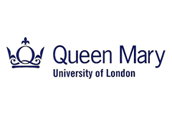International Conference
European Elites and Revolutionary Change:
1789 – 1848 – 1917.
The Aftermath
London, 2 – 3 November 2017
Organised by Anna Ananieva and Andreas Schönle
Venue: QMUL, Mile End Campus, Arts Two, Senior Common Room,
With the emergence of European modernity over the course of the “long” 19th century, the existing systems of power and social relations were not only challenged and renegotiated, they also underwent dramatic alterations – not once, but multiple times. Thus, looking back, it makes sense to locate the struggle to establish a nation-state governed by parliamentary democracy as part of the same historical process as the deposition and beheading of the French king and the murder of the Russian emperor and his family.
The era’s revolutionary upheavals, which saw the participation of not only traditional political actors but also portions of the rural population, brought about wide-reaching changes in the political and social order. Revolutions established new institutions and practices, built new communities, and created alternative forms of identity. Nor did the consequences of these events stop at the borders of the countries or regions where they occurred. On the contrary: they contributed to the transregional circulation of ideas and they appreciably encouraged – indeed, even compelled – the movement of people across borders.
This conference looks at the revolutions of 1789, 1848 and 1917, focusing on the consequences for European elites in terms of their agency, their social status and community belonging, and their everyday lives and lifestyles in general. The organisers invite discussion of the dynamics of the social and cultural changes that accompanied these major revolutionary events. The two-day conference aims to serve as a forum for an interdisciplinary discussion in which the local logic and characteristics of the French Revolution, the central European 1848 Revolution, and the Russian Revolution can be examined in the context of their transnational ramifications. Our hope is that this analysis will make it possible to arrive at a better understanding of the “European elite” as a socially heterogeneous formation that requires a more precise historical definition.
The conference is free to attend, and is open to academics from all research backgrounds.
Conference Report (by Johanna Heisig, University of Tübingen)
Past Events:
Public Lecture Series
Urban and Elegant:
The Aesthetics of Living in the Modern European City
London, April – July 2017
The Public Lecture Series provides an overview of the European topography of the so-called ‘elegant world’, an imaginary community of urban origin which gradually superseded predominated social and gender norms in the timeframe between the French and the Russian Revolutions.
The Series “Urban and Elegant” is organised and introduced by Dr Anna Ananieva, Marie Skłodowska-Curie Fellow at Queen Mary University of London.
This project has received funding from the European Union’s Horizon 2020 research and innovation programme under the Marie Skłodowska-Curie grant agreement No 655429.

